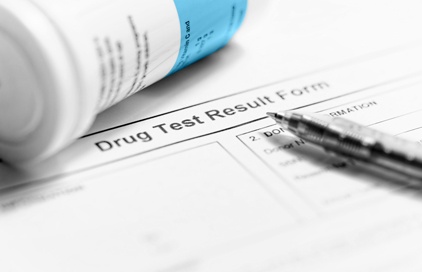2 min read
Instant Oral Swab Drug Testing
![]() Sarah Ensch
:
Jul 28, 2023 12:27:54 PM
Sarah Ensch
:
Jul 28, 2023 12:27:54 PM

Drug testing is commonly utilized by employers to mitigate organizational risks and promote safer workplaces. Testing may occur pre-employment, at random intervals, post-accident, or for reasonable suspicion when observed behavior indicates possible intoxication while performing job functions. Many employers choose to drug test employees and/or candidates to avoid drug-related challenges, such as theft and absenteeism. Further, specific jobs with an elevated risk for injury and property damage, like construction and operating heavy equipment and machinery, can pose increased threats if a worker is impaired, resulting in severe injury, death, and significant financial liability. According to a 2021 national drug use survey by the Department of Health and Human Services (HHS) Substance Abuse and Mental Health Services Administration (SAMHSA), “61.2 million people used illicit drugs in the past year,” and further, an estimated 80% of drug users supported their drug habit by stealing directly from their jobs according to an article by AspenRidge Recovery. Additionally, the National Safety Council surveyed employers on “Drugs at Work,” and 38% of employers had experienced employee drug use related to absenteeism. Pre-hire and post-employment drug testing have proven to be valuable tools in reducing overall theft from the company, work-related accidents, and absenteeism.
Drug testing programs have declined in the last few years for numerous reasons, including increased legalization of marijuana use and concerns for worker privacy. As of 2023, marijuana remains an illegal substance under federal law; however, 46 states have legalized some form of medical or recreational programs, leaving only four (4) states with laws prohibiting marijuana use completely. Due to the number of states legalizing marijuana, many employers are apprehensive about administering drug tests, viewing them as an invasion of their workers’ privacy, especially when their program includes urine-based collections and testing. However, not screening at all due to concerns related to urine-based collections and marijuana legalization exposes employers to the dangers posed by abusing heroin, cocaine, oxycontin, and several other illegal substances and misused prescription drugs, which can have a catastrophic impact on an organization. Fortunately, there is a viable, cost-effective alternative to standard 5-panel urine-based drug screens that include THC screening. Instant oral fluid testing offers rapid results and a less personally invasive collection method. Instant oral fluid testing affords a recent drug detection window of approximately 5-48 hours. The shorter detection window aligns with active, current use enabling employers to determine if an employee or contractor is currently under the influence or a heavy drug user. Further, instant oral swab products like the OralTox test kits afford customized test panels for employers wanting to limit drug testing visibility to specific substances such as cocaine, benzodiazepines, or opioids. Regardless of the panel configuration, instant oral fluid swab tests focus on recent drug use, which can indicate on-the-job impairment.
There are many benefits to organizations opting for instant oral fluid drug testing. Instant oral swab test kits are cost-effective, often resulting in significant overall program savings, and are beneficial for post-accident or reasonable suspicion testing, especially when the need to test occurs outside of standard collection facility and clinic business hours. Instant oral swab tests eliminate many specimen collection issues associated with urine-based collections, including the need for specialized restroom facilities, same-sex collectors for observed collections, “shy bladder” syndrome, and worker discomfort in supplying a urine specimen. Instant oral swab collections minimize adulteration concerns and can easily be observed by supervisors, human resource personnel, or other appropriate staff members. Additionally, they enable companies to take immediate action in the event of a non-negative result and can be sent to a laboratory for confirmation testing without collecting an additional sample from the donor. New technological advances even allow organizations to electronically collect a chain of custody and consent form for the collection and quickly scan, read, and store test results for recordkeeping, audit, and compliance purposes.
Would you like to learn more about how instant oral fluid testing can benefit your drug screening program and help further minimize organizational risks? Email us at marketing@accusourcehr.com to schedule a complimentary personalized program evaluation.
